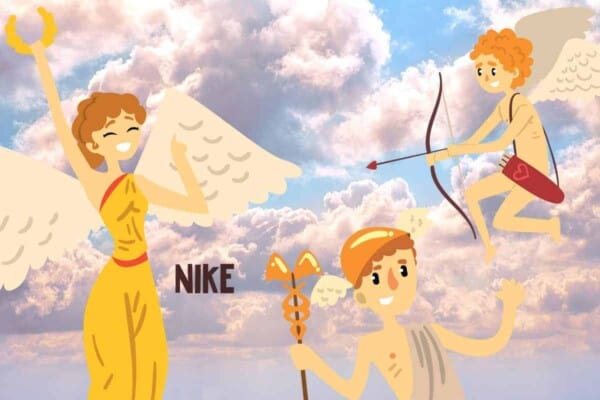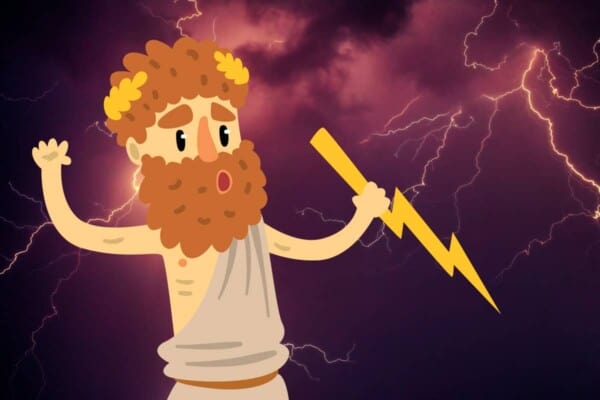There are plenty of amazing Greek myths and legends that have been brought up over the years, but none are as interesting and revealing of human nature as the love story between Hades and Persephone.
So, in this article we will be discussing the intricate relationship between the two, a story full of love, duty and respect, and best of all, we will be addressing the many misconceptions that people have about Hades and who he really was in the Greek mythos.
With that being said though, let’s first get accustomed to the characters that we will be talking about here, starting off with:
Hades, the god of the underworld and the brother of Zeus himself. He is often times depicted as a monstrous tyrant that rules over the underworld with a tight grip on his weapon of choice, a bident.
Persephone is the daughter of Demeter, and she is the Goddess of nature. The two shall meet in a very strange and wondrous place that will set them on a love story unlike anything we’ve ever seen before, and it all starts like this:
The Beginning of the Myth
The story begins with Hades, the lord of the Underground, falling in love with Persephone. Governing over the souls of the damned, Hades was forced to spend most of his time in his decrepit land, but on rare occasions he could also escape and make his way above ground.
This is when he would use all of his efforts to pursue lady Persephone. It is said that when he first saw her, she was laying above ground gathering flowers from a field.
He knew from that moment on that she needed to be his wife, so he decided to tell his brother, Zeus, about her. He asked him for his help, as the two decided to concoct a mischievous plan of their own in order to trap her for good.
But hey, these are two ancient gods with the moral compass of a leaf blower during autumn, so let’s just say that they didn’t spend all that long devising their plan.
So, what they came up with is they would wait for her to be alone, and as soon as she would lose herself in her daily duties, they would cause the earth to split beneath her feet.
The earth split so hard that Persephone ended up in the Underworld, where she met with her abrasive kidnapper.
While Persephone wasn’t exactly all that happy about her abduction though, she eventually came to understand Hades and even love him for who he was.
This was because, while he was a kidnapper, Hades was arguably one of the kindest and most accepting of the children of Cronos and Rhea. As such, the two would end up living together for eternity, ruling over the souls of the damned as they saw fit.
But as is custom in Greek mythology, there is no single story that is considered to be “canon”, there are dozens of other versions that are just as viable as this one. For example, we have this variation:
Persephone and Flower Narcissus
While many would like to think that this is the story of Persephone and Hades alone with a little help from Zeus’s unbridled talent at kidnapping women, this variation also follows Persephone’s mother, Demeter.
She was actually there when Hades kidnapped her daughter, because she was the one that told her to play with the sea nymphs known as the Nereids and the freshwater nymphs known as the Naiads.
The reason why Persephone got separated from the nymphs though is the fact that she saw a Narcissus flower in the distance, one more beautiful than anything she’d ever seen before. This flower was a trap though, one that was planted by Gaia, who was ordered by Zeus to do so.
So, Persephone ended up pulling the narcissus flower out of the ground with all of her might, using all of her strength to barely manage to pull it out. The problem now though was that she had completely tired herself out, and out of the hole that was left behind the narcissus came Hades riding on his horses.
Persephone’s friend Cyane tried her hardest to save her out of Hades’ grasp but it was to no avail as Hades was no pushover God. After her kidnapping, Cyane ended up melting into a pool of tears, forming the river Cyane right then and there.
Upon hearing this troubling news, Demeter, Persephone’s mother, rushed down to see what had unfolded with her very own eyes.
That is when she came across the Cyane River and the remaining nymphs, all weeping the loss of the goddess.
She asked the nymphs what had happened and who was to blame for the loss of her daughter, but no one could answer since Cyane was the only one to see the attacker and she was unable to talk to her.
So, she cursed the nymphs into losing their beauty and becoming horrifying creatures of the deep. These creatures will soon be known as the sirens.
The Cyane River though finally attempted to help her find her daughter by washing over the belt of Persephone. This was done to let Demeter known that whatever had happened to Persephone, it wasn’t her fault and that she was simply overpowered by something.
Upon understanding this, Demeter decided to officially start a hunt for her daughter’s kidnapper, roaming the Earth for as long as nine days and nights, which was enough for her to scour everything that there was to see above ground.
That’s when she actually came across Hekate though, the deity of magic, witchcraft, spirits and crossroads. Hekate saw her as a broken woman who had aged tenfold within these past couple of days as she worried herself to an early grave over the loss of her daughter.
Feeling pity for her, Hekate would then end up telling Demeter to search for Helios, the sun god, as he sees everything above ground and he could tell her what had become of her daughter.
Demeter did so, which in turn led to her finding out exactly who the culprit was and why he did it in the first place.
While Demeter is no match for the likes of Zeus or Hades, she is still considered to be the sister and consort of Zeus, and while she could not hurt the gods directly, her sorrow could in turn lead to a lot of trouble for them.
As such, when she pleaded for her daughter’s rescue, Hades had to abide by her demands, but he did have a slight suggestion though that he made.
Hades stated that he would allow Persephone to live amongst the living, for exactly six months every year. The rest of the time he would have her by his side, as his queen and co-ruler of the Underworld.
In order to make sure that she would return to him, Hades actually tricked Persephone into eating four seeds of a pomegranate with him.
In case you didn’t know by now, eating the fruit of your captor is considered to be a sign that you will always come back to their place or country, it is akin to making a pact that you will always return eventually, and in case you choose not to, your life would be taken in an instant.
While she did enjoy her time with her mother and her friends above ground though, she hated her time with Hades, until of course, she eventually starts to care for him in her own way as the two become what can only be described as one of the only monogamous relationships in Greek mythology.
Many experts actually believe that the myth of Hades and Persephone was created to explain the coming of Spring and Winter.
Persephone is the goddess of harvest and fertility, and she gets to be on Earth during springtime, bringing about all of her gifts to mankind.
When she is forced to return to the Underworld though, it is winter, and as we all know by now, nothing really grows during winter.
Interestingly enough, despite this being the story of a kidnapper and his victim essentially developing Stockholm syndrome for him, the myth of Persephone and Hades was often times considered to be one of the most festive occasions in ancient Greece.
Plenty of festivals took place during this time period, including the Elefsinian rites. These rites are especially intriguing because they were kept hidden from the average man and no one was allowed to write anything about what happened during them.
As such, even to this day we know very little about what actually happened during these Elefsinian rites, and while we do hope we’ll find the answers sometime in the future, we highly doubt we’ll ever shed any light over them in the first place.
While there are theories about them, such as the one that states that the rites were created as a celebration of a more perfect life after death, setting up the foundation for Christianity as a whole.
Fun Facts About the Hades and Persephone Myth
While most of the depictions of Persephone show her as a very kind and loving woman, there are also plenty of depictions that showcase just how scary she really was.
She was known as the Queen of the Underworld after all, and as such people were still afraid of being at the wrong end of her wrath.
This is why she was often times cited with very euphemistic and kind nicknames, so that they didn’t end up invoking her vexation.
She would often times be referred to as “The Maiden” or “The Mistress”, while others would simply call her “The Pure One”, “The Venerable One or even “The Great Goddess”.
At the same time, she is most often times depicted with her mother alongside her, which is why many people would even go as far as to call them “The Two Demeters” or better yet “The Two Goddesses”.
Another interesting fact that we would like to address here is the fact that many people consider Hades to be the equivalent of Lucifer from Christianity.
This couldn’t be further from the truth as the two are vastly different from one another. This is why many actually believe Hades to be a horrifying monster of a god, one that rules over the sinful men and women punishing them for eternity.
This isn’t what Hades is all about though, because while Lucifer holds control over every evil soul in Hell, Hades is merely the ruler of all of the souls that happen to pass over the Styx River. He does not deal with the evil spirits alone; he rules over everyone equally.
Lucifer is also most often times considered to be a rebellious creature that tried to take down God in his spiteful rage against humanity.
This wasn’t the case with Hades in the slightest, since while there are more than a handful of not-so-pleasant nicknames we can give him, Hades was never actually seen as rebellious or even evil by any means.
While Zeus and Poseidon wanted power and respect, all that Hades wanted was to rule over the dead, the souls that are forgotten by the world that wonder around aimlessly without a ruler.
While he does sometimes deal with evil souls though, it is known that he often times rewards the humans that perform good deeds in his name, which is never the case for Lucifer.
He even ended up creating a paradise in the Underworld for the souls of the good at one point in order to appease his wife who had asked him for this for a while. So, in a way, the closest thing to Heaven that there is in Greek mythology can be found in the equivalent of Hell.
Last but not least, while Lucifer is definitely a strong character in the Bible, he is no match for the other archangels, with Michael pretty much being the bane of his existence during his rebellion against God.
On the other side of the spectrum, Hades is pretty much one of the three strongest gods in his universe. Poseidon and Zeus may or may not be stronger, but we have seen time and time again that the three are by far the most feared in the Greek mythology and for good reason too.
So, while the two are both rulers of the dead that are feared by many, Lucifer is an evil archangel that punishes evil spirits in order to transform them into his abiding servants, while Hades is a just and kind ruler that loves his wife and makes sure that things go accordingly in his realm.
Conclusion
Greek mythology will always strike us as one of the most interesting and alluring folklores around. The reason as to why it is so interesting is because the gods themselves are strangely enough very human in their wants and needs.
Their adventures are not what we can find in a more modern religion such as Christianity, they are less about the soul’s purity and divinity and more so about what humanity would do if we had access to these powers.
The gods are not pure, they are not without their issues. Zeus himself is pretty much HR’s worst nightmare and we would be hard-pressed to find a single male god that hasn’t at one point forced himself upon a woman.
With that being said though, that may also be what’s so interesting about them in the first place. They are not aways nice, they are not always fair, but they never fail to entertain us because of how outlandish and jarring their legends are.




















